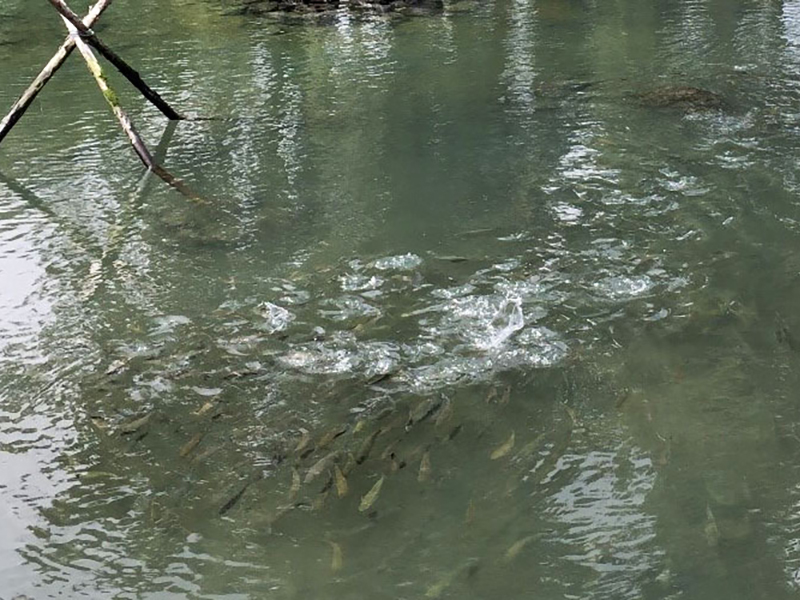Impacts of climate change on water quality and fish recruitment in Native Hawaiian fishponds

Hawaiʻi is the most geographically isolated state in the U.S. and currently faces a multitude of challenges, including environmental uncertainties, increasing urbanization, a growing population, and a dangerously high dependence on imports. These challenges, coupled with climate change, highlight the urgent need to develop a more sustainable and resilient Hawaiʻi. Fortunately, Hawaiʻi has a rich history of indigenous aquaculture dating back to the 1400’s. Loko iʻa (Hawaiian fishponds) could serve as key models of food sustainability for Hawaiʻi and across the Pacific region.
The overall goal of this proposed project is to apply cutting-edge science tools and methodologies that can be utilized by kia‘i loko (fishpond managers) in enhancing resilience and adaptation of loko iʻa to climate change and its impacts. The project objectives are to: (1) create water quality monitoring stations that provide data to university researchers and kiaʻi loko in real-time to inform restoration efforts and support timely, responsive adaptive management of loko i‘a; (2) develop a live streaming underwater camera system to observe recruitment and activity of fish and other organisms in the fishponds to be correlated with the real-time water quality data; and (3) collaborate with local schools to enrich student learning experiences by providing opportunities for students to partner with university researchers in utilizing cutting-edge science tools.
The proposed project, the first of its kind, provides an alternative perspective in data collection and analysis, utilizing a multi-sensory observational approach. This approach in knowledge co-production will support place-based management decisions in a changing climate and serve as a model for loko iʻa throughout Hawaiʻi and across the Pacific region.
PROJECT DETAILS
FUNDED:
FY2023
PI:
Cherie Kauahi
Aquaculture Specialist, Hawaiʻi Sea Grant
Co-Is:
Kamala Anthony
Co-founder, Hui Hoʻoleimaluō
Bradley Fox
Aquaculture Extension Specialist, Hawaiʻi Sea Grant
Darren Okimoto
Associate Director, Hawaiʻi Sea Grant
Anne Rosa
Marine Education Specialist, Hawaiʻi Sea Grant
Collaborators
John Burns
Associate Professor of Marine Science and Data Science, UH Hilo
Huanani Kane
Assistant Professor of Earth Science, UH Mānoa

